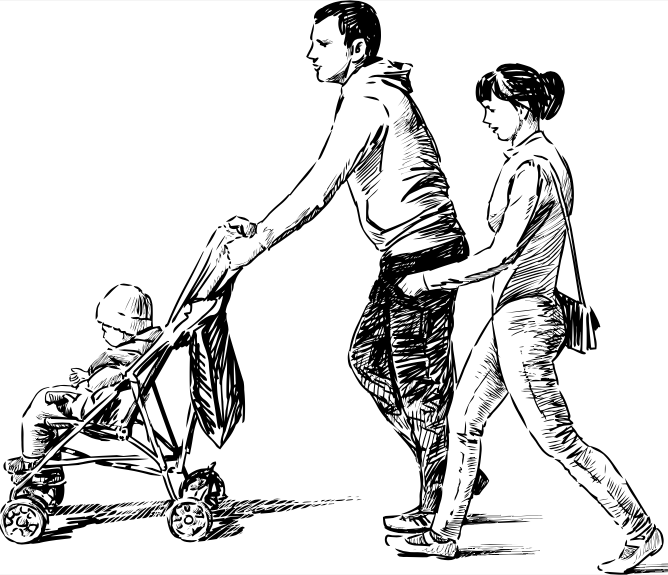What to Do if an LPA Attorney Dies Before You
When you make a Lasting Power of Attorney (LPA) you appoint someone you trust to act as your attorney. If your appointed attorney becomes seriously ill or dies, what happens next will depend on what your LPA says and whether you are still able to make your own decisions at this point.
If you have appointed additional attorneys in your LPA, they may be able to step in and act. If you only appointed one attorney, you’ll need to make a new LPA appointing new attorneys (as long as you still have capacity to do so).
What to do if Your attorney cannot act
Making a Lasting Power of Attorney is a crucial part of future planning. It’s a legal document that allows you to appoint people you trust to make decisions for you, if there ever comes a time when you’re unable to make decisions for yourself. The person you appoint is called your attorney.
Most people will ask someone close to them to act as their attorney – usually their spouse, child or close friend. But there are things in life that you can’t anticipate, and it may be that the person you have chosen as your attorney can no longer act, because they have become unwell or died.
What happens next depends on what provisions you have made in your Lasting Power of Attorney.
If you have more than one attorney
You may have appointed more than one attorney. This is allowed, and in fact there’s no limit to the number of attorneys you can have. If you’ve named other attorneys, you need to check how you’ve appointed them. Have you instructed them to act ‘jointly’, ‘jointly and severally’, or ‘jointly for some decisions, jointly and severally for others’?
If they’ve been appointed:
- Jointly – they must all unanimously agree on decisions
- Jointly and severally – they can make decisions without the agreement of the other Attorneys
- Jointly for some decisions, jointly and severally for others – they must act jointly in some important decisions (as set out in your LPA) but not for others
If your attorneys have been appointed jointly and severally, they can continue to make decisions on your behalf, even if one attorney becomes unable to act.
But if your attorneys been appointed to act jointly, and one attorney is unable to act, the other attorneys won’t be able to make any joint decisions. That’s because you’ve requested that all your attorneys work together.
So, if you’ve appointed your attorneys jointly, your Lasting Power of Attorney will no longer work. If you’ve appointed your attorneys jointly and severally, the other attorneys will still be able to make decisions.
If you’ve only appointed one attorney, or you’ve appointed multiple attorneys to act jointly, you’ll need to make a new LPA.
Replacement attorneys
A Lasting Power of Attorney allows you to nominate replacement attorneys. Replacement attorneys are there to step in if the original attorney can no longer act.
The way your replacement attorneys act will again depend on how you’ve appointed your original attorneys.
If you’ve appointed them to act jointly and severally and one of the original attorneys can’t act, the replacement attorney can effectively step into their shoes.
If you’ve appointed your original attorneys to act jointly, then all of the original attorneys must step down so the replacement attorney can take over
One original attorney
If you had only appointed one attorney and that person has fallen ill or has died, and you don’t have any replacement attorneys, you’ll need to make a new Lasting Power of Attorney.
Deputyship Order
It’s important to note that you can only make a new Lasting Power of Attorney if you still have capacity. So if you’ve found yourself in a position where your LPA needs to be changed because your named attorney can no longer act, it’s best to sort it out now, before it’s too late.
If there isn’t a valid LPA in place and you lose capacity, your loved ones will have no other choice but to apply to the Court for a deputyship order. This can be a long and expensive process. If no one is able or willing to go through this process, it will fall to representatives of your Local Authority to make decisions on your behalf.
Case Studies
Over the years, CKE Attorneys have helped hundreds of individuals and businesses up and down the country. Some of our success stories are below...
-
 Read MorePersonal InjurySlip, Trip or Fall Accidents in Public PlacesIf a member of the public gets injured in a slip, trip or fall accident in a public place, and reasonable steps hadn't been taken to make the area safe, the injured person may be entitled to make a public liability claim.
Read MorePersonal InjurySlip, Trip or Fall Accidents in Public PlacesIf a member of the public gets injured in a slip, trip or fall accident in a public place, and reasonable steps hadn't been taken to make the area safe, the injured person may be entitled to make a public liability claim. -
 Read MorePersonal InjuryWill Personal Injury Compensation Affect My Benefits?Receiving state benefits should not stop an injured person starting a claim for personal injury or medical negligence compensation.
Read MorePersonal InjuryWill Personal Injury Compensation Affect My Benefits?Receiving state benefits should not stop an injured person starting a claim for personal injury or medical negligence compensation. -
 Read MoreFamily LawClean Break Orders explainedA clean break order is used following a divorce and essentially means that each person's financial affairs are completely severed from the other's. Without a clean break order or a consent order from the court, your ex-spouse could make a financial claim against you at any time in the future.
Read MoreFamily LawClean Break Orders explainedA clean break order is used following a divorce and essentially means that each person's financial affairs are completely severed from the other's. Without a clean break order or a consent order from the court, your ex-spouse could make a financial claim against you at any time in the future.